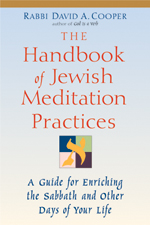
CONTEMPLATIVE REFLECTIONS ON THE PSALMS
The rabbis taught: "Those who are humiliated by others, but who do not humiliate others, who listen to criticism without responding, do things out of love and have joy despite their sufferings, about them it is said: 'Those who love the Divine are like the sun in its full strength."' Babylonian Talmud: Shabbat 88b
One of the most effective forms of meditation is the process of repetition and memorization. Repetition is used in many traditions in the form of mantras (Hindu and Buddhist), wazifas (Sufi), litanies (Christian), and prayer. Memorization is included to strengthen our concentration as well as to help free the mind from extraneous thoughts. It is a basic practice in many traditions, and has been a fundamental technique used in Judaism for thousands of years.
Memorization was so much a part of Judaism that an entire body of oral tradition was passed down from teacher to student for over a thousand years before it was ultimately recorded in writing. The Mishna, upon with the Talmud is based, means literally "to repeat,; which is the practice required to sustain an oral tradition. In the days of the Talmud, two thousand years ago, individuals had prodigious memories and could quote entire volumes word for word.
Memory continues to be a major part of traditional Jewish education. Young students memorize dozens of pages of oral tradition and vast amounts of Torah and Talmud. This practices turns out to be a useful contemplative technique. It is especially helpful for people who are plagued by a busy, unruly monkey mind that constantly swings from one thought to another.
Many options are available to us for memory work, but one of the most universal sources is the Psalms. In the Psalms we find a wide range of emotional expression, a marvelous poetry, and a language that is deeply devotional. Memorizing lines in the Psalms is not only beneficial in our meditative practice, it has the side benefit of elevating our potential for meaningful prayer. Something transformative occurs when we repeat these words over and over; they begin to resonate on their own, and this has a mysterious effect upon our souls.
Try it, and see what happens:
1. Ask yourself a meaningful spiritual question. Then glance over verses from Psalms in your own text, or the short phrases from Psalms in the appendix. Pick one verse that seems to call to you.
2. Write this verse on a card, first in English, and then-if you have elementary Hebrew skills-in Hebrew. English will work fine in terms of meaning and content, but the poetry lies in the Hebrew version.
3. Learn the verse by heart, repeating it over and over for about 10 minutes.
4. Now, find this verse in a book of Psalms. Read over the entire psalm. (You will probably have a different English version than is recorded in the appendix, but it will be close. There are dozens of versions in English.)
5. Sit quietly, contemplating the meaning of the psalm and how it speaks to you. Now, without looking, see if you can remember the verse that you memorized a few minutes ago. If not, look at it, write it down again, and repeat it a number of times.
6. Repeat steps 15 with a new sentence in Psalms. At various moments during the process, see if you can recall the original line that you memorized. Do this over and over again with three different lines.
7. When your time is up, put everything away and go on with your day. But set an alarm to buzz 1 or 2 hours from now. When the alarm goes off, see if you can remember the three lines. For any that you cannot remember, look once again at the card you have written and spend a minute memorizing it.
8. Memory depends on repetition and time. When learning entirely new things, we often forget at least half of what we learn within a few hours. This is why it is important to refresh the memory every couple of hours. After a while, the memorized material stays with us and then only needs to be refreshed every few days. In this way, quite a few verses can be memorized in a fairly short time.
For those who are ambitious in the memory technique, it is recommended that you learn as many psalms as you wish. If one is not enough, learn two or more. Some people memorize all one hundred and fifty psalms. This is an excellent project and pays rich rewards in many ways.
However, be careful not to allow your ambitions to cloud your basic meditative practice of equanimity. Do not have expectations for total recall to last forever. Treat memorization as a end in itself; the primary value comes from concentrating the mind. The amount of time you are able to remember something should not be judged. If you forget a line, simply return and memorize it over again, without self-criticism. This relaxed approach allows a sense of freedom in the entire process, and then it becomes a joy rather than a burden. Joy is one of the of the key foundation stones of Jewish meditative practice. Relax. Have fun with this practice